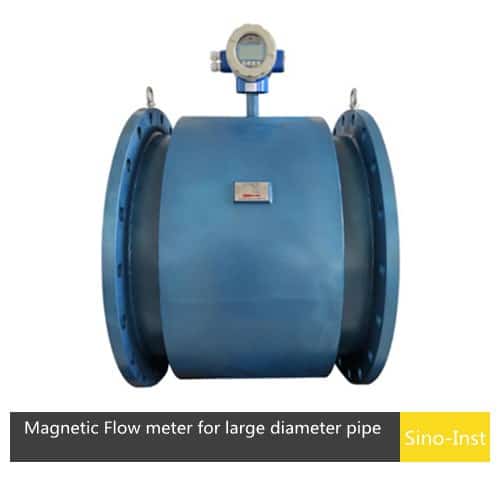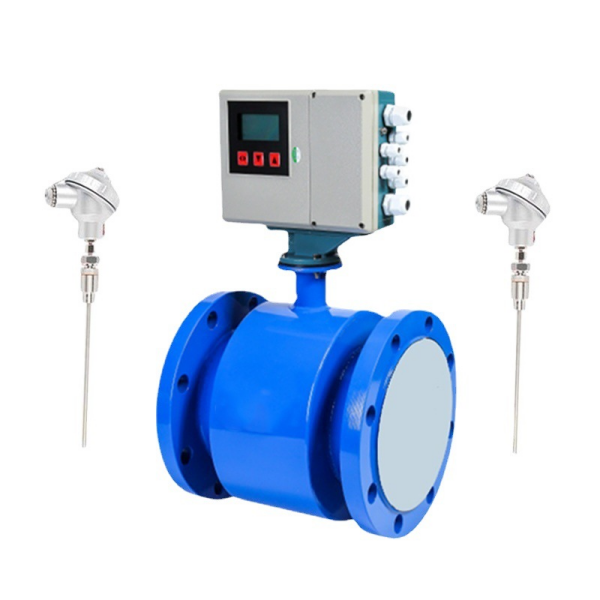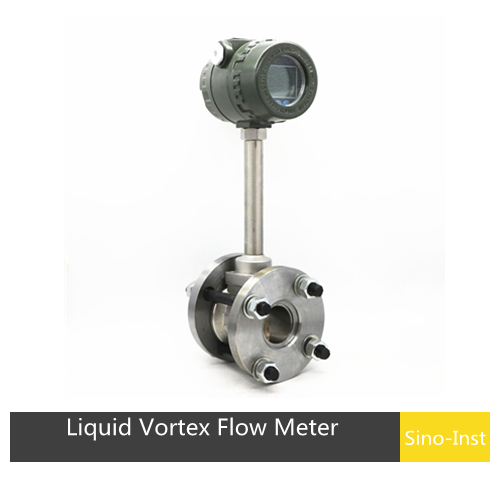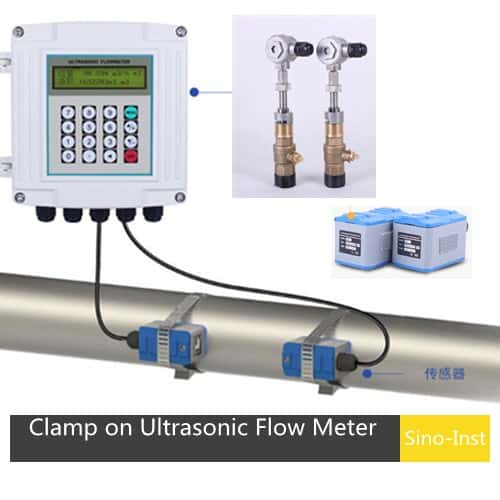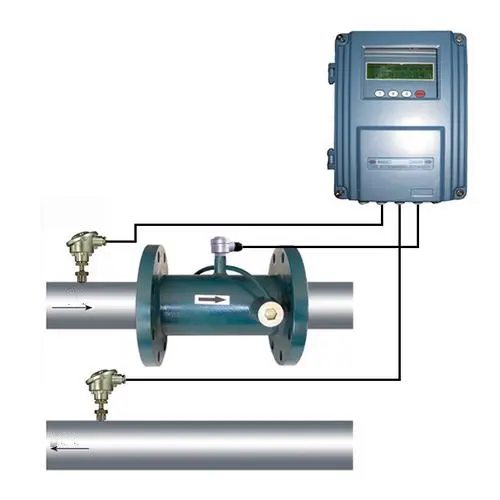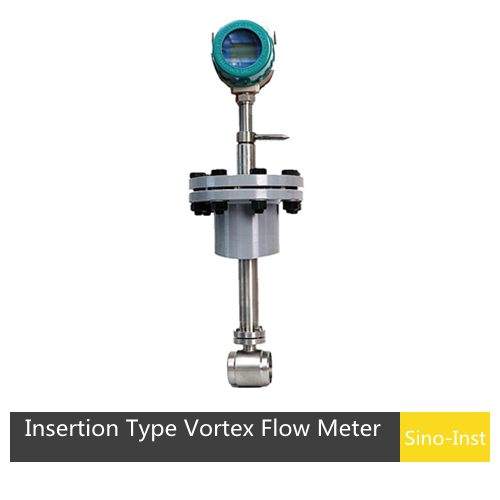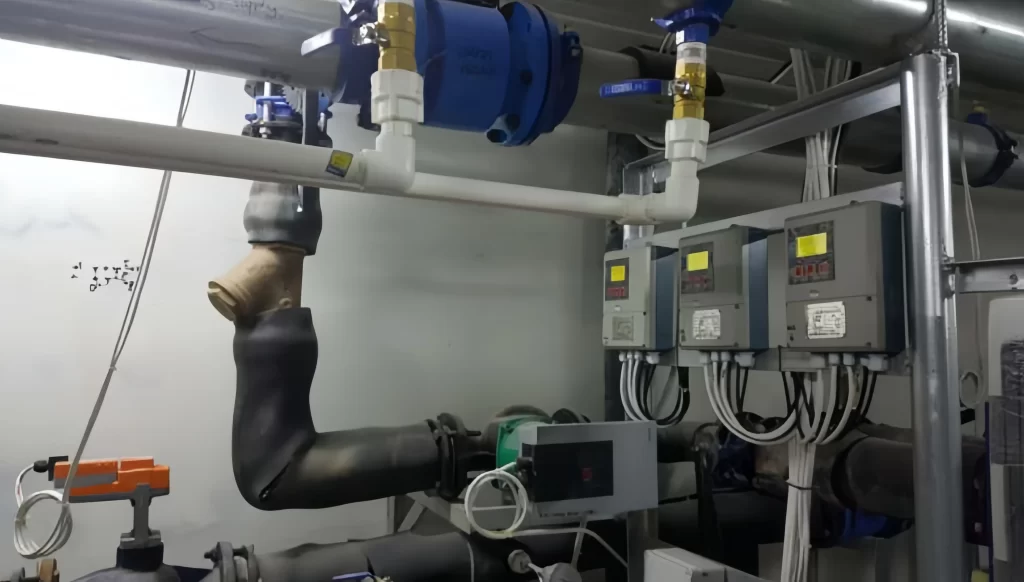
BTU meter accurately measures the thermal energy of hot and chilled water consumption in British thermal units (BTU), a basic measure of thermal energy for commercial and residential buildings. BTU meters are used in hot and chilled water systems for both commercial and industrial processes and office buildings.
BTU meters comprise an accurately calibrated flow sensor, a pair of temperature sensors, and a flow transmitter with an integral energy computing capability unit to calculate net heat consumed.
In this blog post, we’ll analyze their function, how they’re applied in both chilled and hot water system and why they’re so essential for accurate energy management.
We will also explore the related role of ‘hot water flow meters’, which complement BTU meters by accurately tracking the flow of hot water in heating systems.
Why Accurate Energy Measurement Matters?
BTU meter is an ideal choice for integrating with a wide range of applications in HVAC, heating/cooling energy production, and other applications. Such as:
- Energy management systems.
- Building management systems.
- BTU sub-metering systems.
By understanding exactly how much energy is being consumed, users can take steps to optimize their systems.
Moreover, accurate measurement allows for more precise billing, ensuring that businesses and residents pay only for the energy they use. It also enables cost savings through improved energy efficiency.
Reducing energy waste not only lowers costs but also minimizes carbon emissions. BTU energy meters can help organizations and individuals become more environmentally conscious by providing insights into their energy usage patterns.
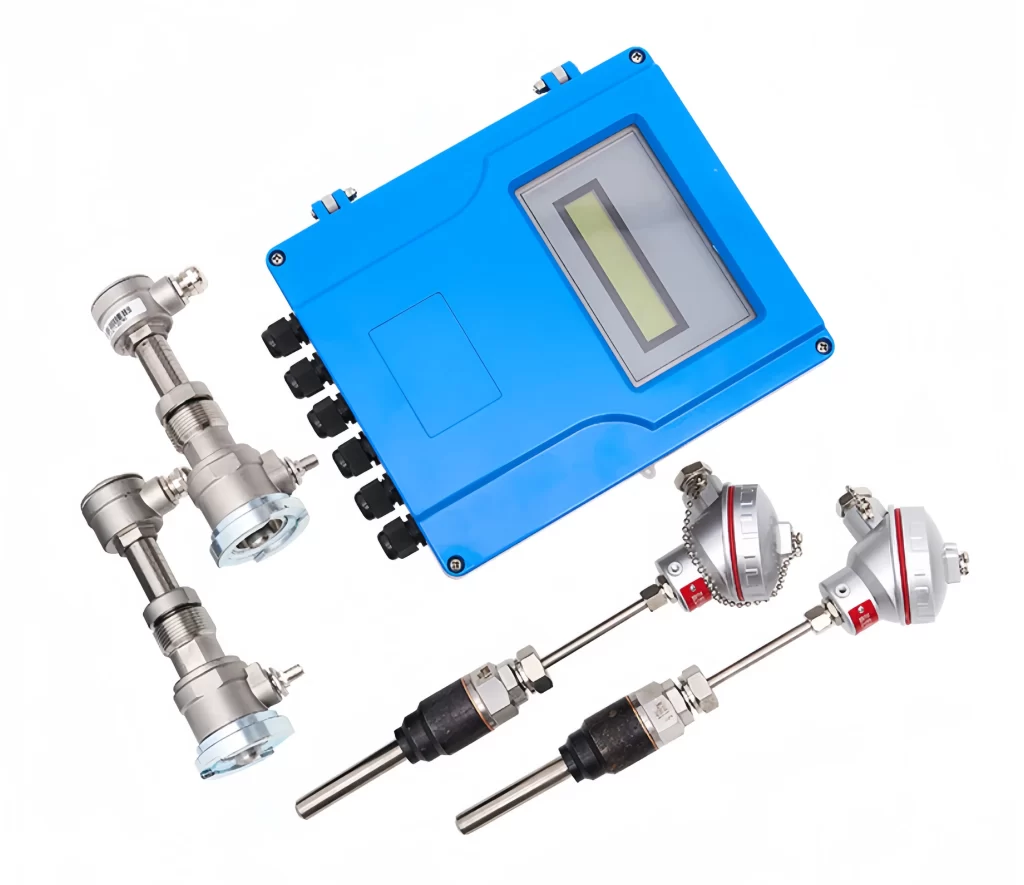
What is a BTU Meter/BTU energy meter?
A BTU meter is used to calculate the energy consumed in a heating or cooling circuit, providing critical data for assessing system performance and energy efficiency.
BTU represents the energy needed to raise the temperature of one pound of water by one degree Fahrenheit.
BTU meters are often used in HVAC (heating, ventilation, and air conditioning) systems to artifact energy consumption in buildings, whether for heating, cooling, or both.
BTU Meter’s key components
- Flow Sensor
- Temperature Sensors
- Calculating Unit ( Transmitter )
Energy (BTU) = Flow Rate × Temperature Difference × Heat Capacity
Featured BTU Meters
Implication of BTU Meters for Chilled Water Systems
In chilled water systems, such as those used in large buildings and industrial facilities, BTU meters are invaluable for accurately measuring cooling loads.
Since cooling can represent a significant portion of energy consumption in these applications, the ability to measure how much energy is used by the chilled water system is critical.
Fundamental Benefits of BTU Meters for Chilled Water
- Energy Efficiency
- Cost Allocation
- System Optimization
- Sustainability
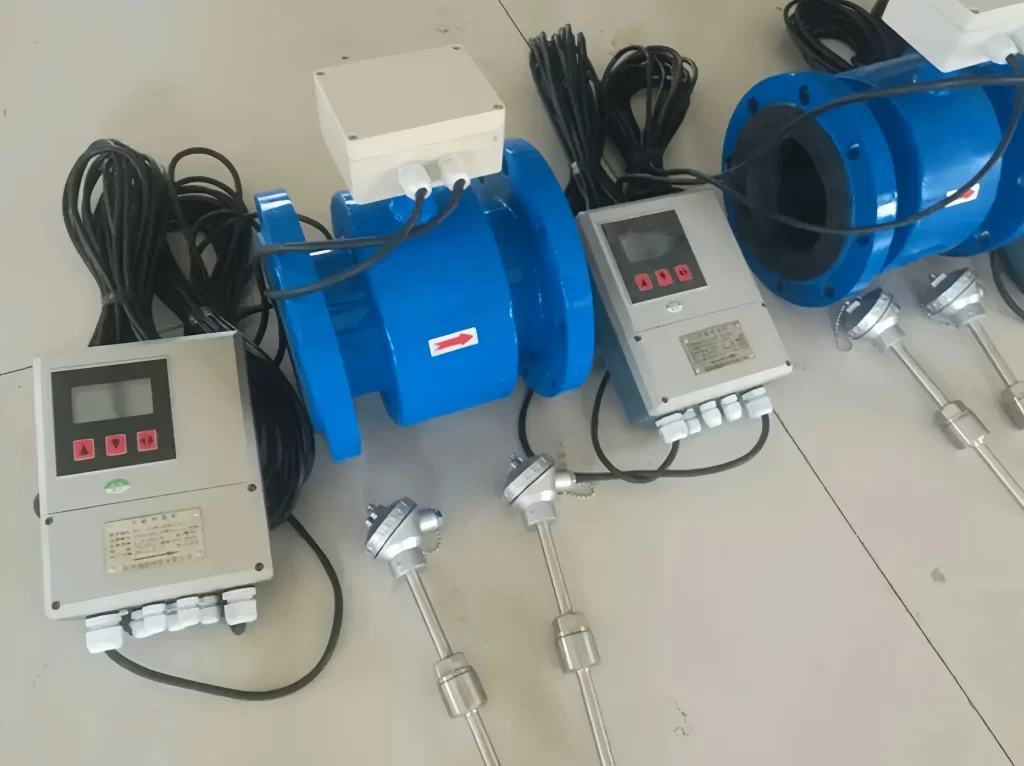
BTU Meters for Hot Water Systems: What’s the significance
While BTU meters are typically associated with cooling systems, they also play a crucial role in monitoring ‘hot water systems’.
These systems, often used for space heating in residential, commercial, and industrial buildings, require precise measurement of energy usage to ensure efficient operation.
Why Use a BTU Meter for Hot Water?
- Accurate Heat Measurement
- Cost Savings
- Prevention of Overheating
- Performance Monitoring
Hot Water Flow Meters and HVAC Systems
Complementing the function of BTU meters in hot water systems, ‘hot water flow meters’ play a vital role in measuring the volume of hot water circulating in the system.
These meters are often installed in heating circuits, industrial processes, and domestic hot water supply lines. Accurate flow measurement is essential for both billing and system optimization.
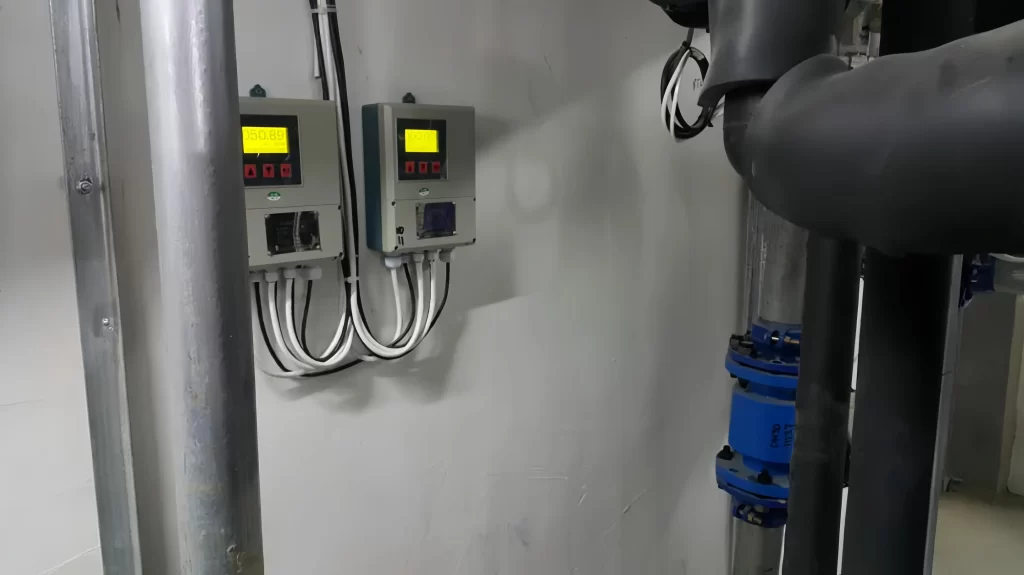
How do Hot Water Flow Meters Work?
A ‘hot water flow meter’ measures the rate at which water flows through a pipe, providing crucial information for managing water usage and ensuring the correct amount of heat is delivered to different zones within a building. These devices can be based on different technologies, such as Turbine flow meters, Ultrasonic flow meters or Electromagnetic flow meters.
Fundamental Benefits of Hot Water Flow Meters
- Accurate Measurement
- Billing Transparency
- System Performance
More Flow Measurement Solutions
- Turbine Water Flow Meter: A Versatile And Reliable Choice For Water Flow Measurement
- Pulse Output Flow Meters for Better Water Flow Measurement
- Ultrasonic Clamp On Flow Meter – For Easier Water Flow Measurement
- Choosing the Right Inline Water Flow Meter
- Cooling Water Flow Measurement
- Flow Meters for Domestic Water-Potable Water-Drinking Water
- Digital Water Flow Meter
- Steam Flow Meters
- Sanitary Flow Meter
- Wastewater flow meter
- Water Flow Meter Types
Having the right tools for energy management makes all the difference. A high-quality BTU energy meter is one of those tools, providing the accuracy and reliability you need to manage your energy consumption with confidence.
By measuring flow rates and temperature differences, Sino-Inst BTU meters provide precise data that can help optimize energy efficiency, reduce costs, and impart sustainability efforts.
Whether for commercial buildings, industrial processes, or residential systems, Sino-Inst BTU energy meters play a vital role in ensuring energy is used efficiently and effectively.
-1.jpg)
